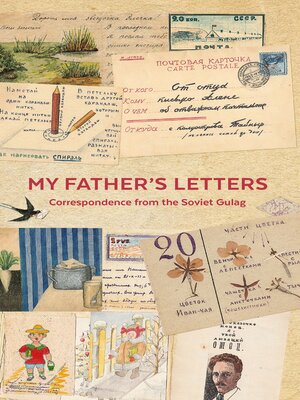
Sign up to save your library
With an OverDrive account, you can save your favorite libraries for at-a-glance information about availability. Find out more about OverDrive accounts.
Find this title in Libby, the library reading app by OverDrive.



Search for a digital library with this title
Title found at these libraries:
| Loading... |
A profoundly moving and historical record—letters sent by sixteen fathers imprisoned in the Gulag camps to their children during the 1930s–1950s.
“They will live as human beings and die as human beings; and in this alone lies man’s eternal and bitter victory over all the grandiose and inhuman forces that ever have been or will be.” —Vasily Grossman, Life and Fate
Between the 1930s and 1950s, millions of people were sent to the Gulag in the Soviet Union. My Father’s Letters tells the stories of sixteen men—mostly members of the intelligentsia, and loyal Soviet subjects—who were imprisoned in the Gulag camps, through the letters they sent back to their wives and children. Here are letters illustrated by fathers keen to educate their children in science and natural history; the tragic missives of a former military man convinced that the terrible mistake of his arrest will be rectified; the “letter” stitched on a bedsheet with a fishbone and smuggled out of a maximum security camp. My Father’s Letters is an immediate source of life in prison during Stalin’s Great Terror. Almost none of the men writing these letters survived.
“My Father’s Letters is well presented and deeply moving. The translation is fluent and all the necessary background information is clearly provided. Some passages conjure up the life of an individual family—and of an entire culture—with heart-breaking vividness.” —Robert Chandler
“Astoundingly, these stories are not miserable. Yes, the men mention their inadequate shelter, clothing and food, but the overwhelming impact is the expression of their love for their families . . . My Father’s Letters is beautifully produced.” —Vin Arthey, Scotsman






